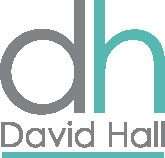Are environental issues key to your busines success…
…then get certified to the latest ISO 50001
ISO 50001 Compliance
If your company employs over 250 staff then you were required to be ISO 50001 compliant by December 2015 and the current deadline was 2021. It will enable your company to reduce your carbon footprint and as a result help you to reduce your energy costs.
ESOS compliance can be achieved through a number of options including undertaking an ESOS Energy Audit or gaining ISO 50001 certification.
Every enterprise will have differing requirements to maximise the benefits from ESOS compliance in terms of identifying and quantifying cost effective and practical opportunities to reduce energy consumption without incurring undue costs and demands on internal resources.
Enterprises should
- Identify the overall least net cost, and most beneficial route, to gain ESOS compliance
- Ensure that benefits from ESOS compliance are maximised
- Budget and plan for the programme of works to achieve ESOS compliance
If your enterprise has a well-developed management system ethos based on ‘plan–do-check-act’ (PDCA) you may gain more from training, developing, implementing and gaining certification to ISO 50001 as an alternative route to ESOS compliance.
ESOS has no requirement for enterprises to act on energy savings opportunities identified by the audit, but by not acting it means the exercise has been expensive and non-productive.
Whilst ISO 50001 allows a route for ESOS compliance it also provides a framework that an organisation can use to manage the findings and opportunities identified in terms of their energy management. As a result, organisation’ certified to ISO 50001 have an advantage of actively improving their energy management and reducing energy costs.
The differences between implementing ESOS and ISO 50001 include
ESOS Energy Audits
Provide a detailed understanding of the size and cost implications of potential savings and energy reductions
The majority of this resource will come externally
It could involve an intensive suite of external audits and the output will not drive the continual improvement or optimisation of the opportunities identified.
ISO 50001 certification
It provides a clear framework for continual improvement in energy costs and performance
It requires full senior level buy in and commitment to drive a long terms plan of improvements
The skills, competence and resources are normally sought from within the organisation and implementation must be achievable by the ESOS deadline.

